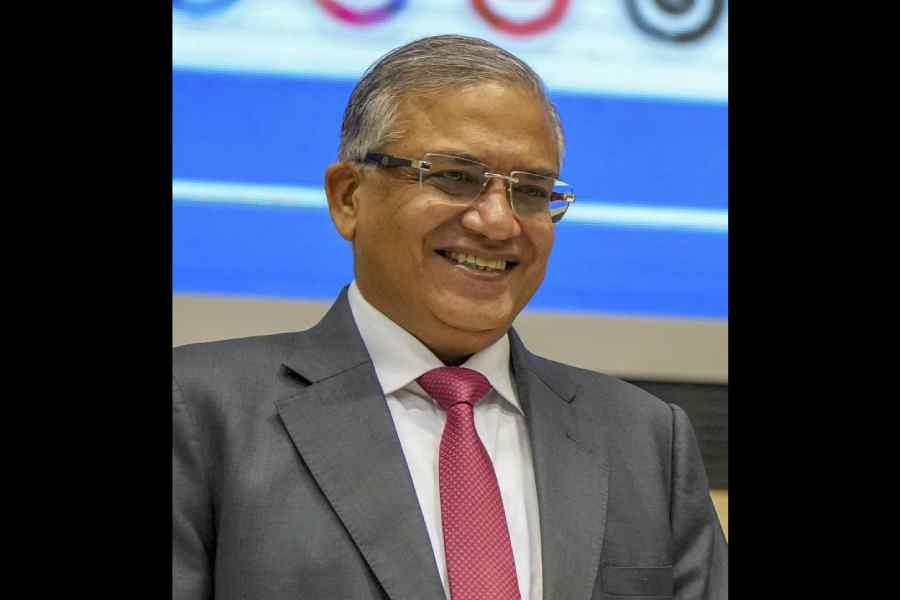The Supreme Court has agreed to examine on Wednesday the plea for a “priority” and “out-of-turn” hearing of petitions challenging the appointment of the new chief election commissioner under a 2023 law that excluded the Chief Justice of India from the selection panel.
The appointment was made two days before the apex court is to hear pleas challenging the constitutional validity of the Chief Election Commissioner and other Election Commissioners (Appointment, Conditions of Service and Term of Office) Act, 2023, which replaced the CJI with a cabinet minister on the selection panel, thereby increasing the government’s heft in the appointment of poll panel officials.
“We will decide tomorrow if it is to be prioritised. We can also take it up out of turn. You mention after the fresh matters, we will see,” a bench of Justices Surya Kant and N. Kotiswar Singh told advocate Prashant Bhushan appearing for the Association for Democratic Rights (ADR), one of the petitioners who have challenged the appointment of the new CEC.
The bench made the observation after Bhushan brought up the appointment of Gyanesh Kumar as the CEC on Monday following his selection by a panel comprising Prime Minister Narendra Modi, Union home minister Amit Shah and the leader of the Opposition in the Lok Sabha, Rahul Gandhi.
Rahul had presented a dissent note on the appointment of the CEC before the Supreme Court could take up the pleas challenging the constitutional validity of the 2023 law.
During the morning mentioning time on Tuesday, Bhushan said: “Tomorrow please take it up as Item 1. The government is making a mockery of the constitution bench judgment.
“It is listed tomorrow as Item 41, I am requesting that it be taken at the top of the Board. It’s exceedingly important for the future of our democracy…. They are making a mockery by appointing ECs and CECs in violation of the constitution bench judgment…. which we have challenged.”
According to the ADR, the Act was passed in violation of the Supreme Court’s five-judge constitution bench judgment in the Anoop Baranwal vs Union of India case that held that the election commissioners had to be selected by an independent panel comprising the Prime Minister, the leader of the Opposition and the CJI.
Justice Kant, heading Tuesday’s bench, assured Bhushan that the apex court would take up the matter on a priority basis provided no other important matters came up for hearing.
Advocate Varun Thakur, appearing for Madhya Pradesh Congress leader Jaya Thakur, said two appointments had been made by the government under the new law, which was under challenge.
The petitions to be heard on Wednesday have challenged the CJI’s exclusion and contended that the Election Commission should be insulated from “political” and “executive interference” for maintaining a healthy democracy.
The Centre appointed Kumar as the CEC and Vivek Joshi as the election commissioner despite the pendency of the petitions.
Kumar’s term ends on January 26, 2029, days before the EC is expected to announce the schedule for the next Lok Sabha elections.










